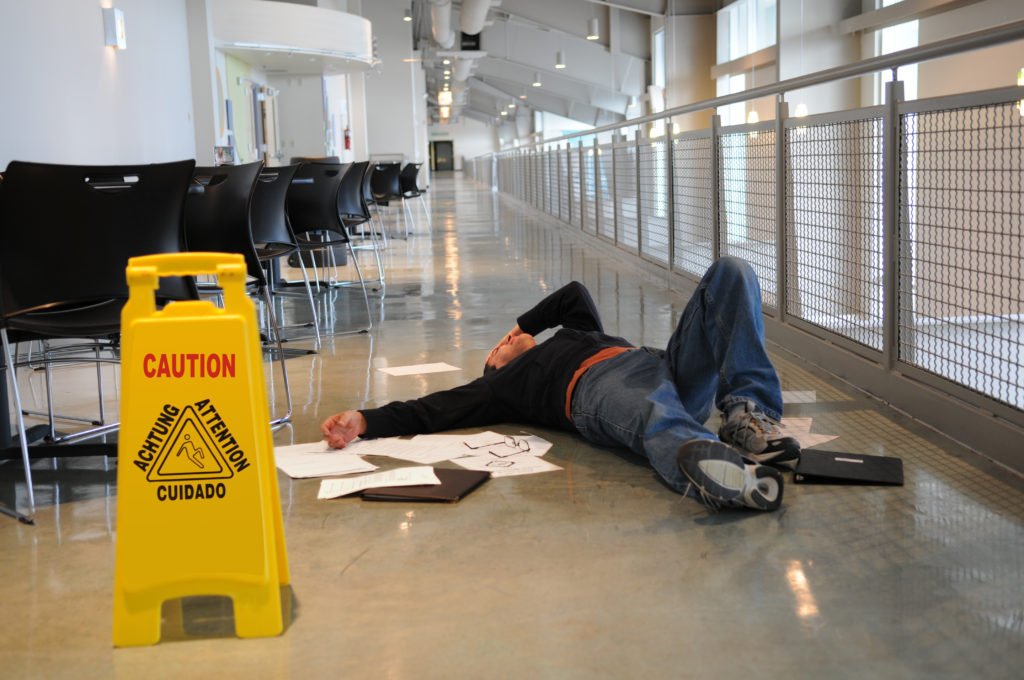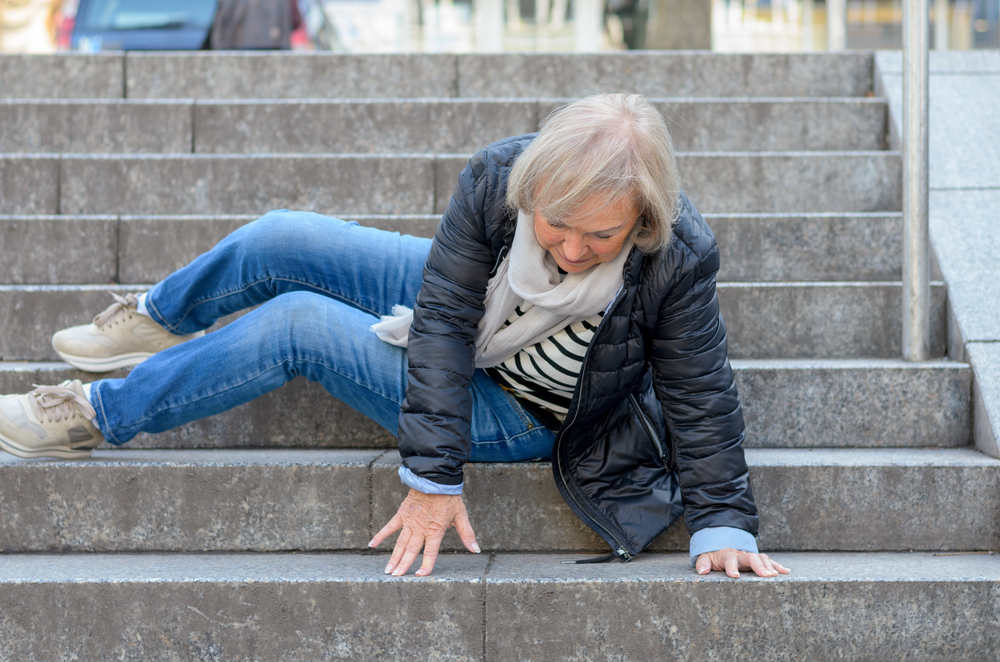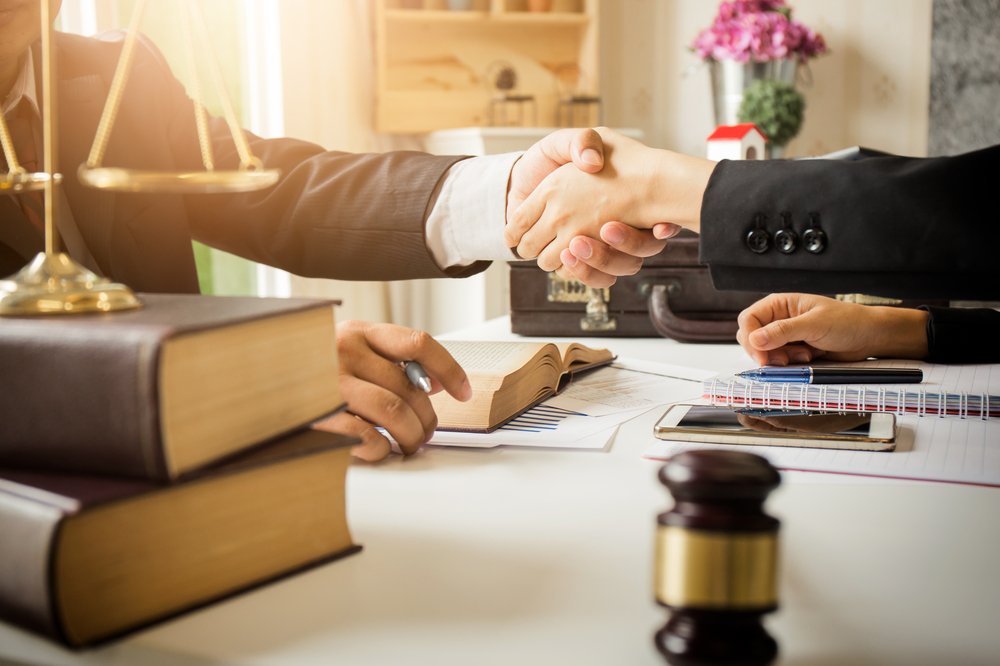As someone who has experienced a slip and fall accident, you understand the pain and frustration that can come with it. Not only do you have to deal with physical injuries, but there are often financial burdens as well. Medical bills, lost income, and other expenses can quickly add up, leaving you feeling overwhelmed and unsure of what to do next.
The good news is that you can seek compensation for your injuries and damages if someone else's negligence caused your slip and fall accident. Below, we will explore the process of proving fault in a slip and fall accident and how a slip and fall lawyer in Florida can seek full compensation for your losses.
Where Do Slip and Falls Happen?
Slip and falls can happen virtually anywhere, but there are certain places where they are more common. Some of the most common locations for slip and fall accidents include:
- Grocery stores and supermarkets
- Restaurants and bars
- Retail stores and shopping malls
- Office buildings and commercial properties
- Sidewalks and parking lots
- Hotels and resorts
- Public spaces such as parks and recreational areas
A property owner or occupier has a duty to keep their premises safe for visitors. If they fail to do so and their negligence leads to a slip and fall accident, they may be held legally responsible for the injuries that result.
How Does Negligence Lead to Slip and Falls?
Negligence is a key factor in slip and fall accidents. When someone is negligent, it means they have failed to exercise reasonable care, resulting in harm to another person. In the context of slip and fall accidents, negligence can take many forms, including:
- Failing to clean up spills or wet floors in a timely manner
- Neglecting to repair or warn about hazardous conditions, such as broken stairs or uneven flooring
- Failing to properly maintain walkways, including removing ice and snow in a timely manner
- Failing to provide proper lighting in areas where visibility is low
- Neglecting to provide handrails or other safety features where necessary
To prove negligence in a slip and fall case, you must establish four key elements:
- Duty of care: The defendant (property owner or occupier) owed you a duty to keep the premises safe.
- Breach of duty: The defendant breached their duty by failing to maintain safe conditions or warn of hazards.
- Causation: The defendant's breach of duty directly caused your slip and fall accident.
- Damages: You suffered physical injuries, emotional distress, or financial losses as a result of the accident.
Proving these elements is complicated and involves complex legal principles and evidence. You need an experienced slip and fall lawyer handling this for you. They can assess whether you can prove negligence in your case and take the necessary steps to build a strong claim.
Potential Liable Parties for a Slip and Fall Accident
In a slip and fall accident, there may be multiple parties who can be held liable for your injuries. Potentially liable parties may include:
- Property owners: If the slip and fall accident occurred on someone else's property, the property owner may be held responsible for maintaining safe conditions.
- Property managers: In cases where the property is managed by a company or individual, they may also share liability for the accident.
- Occupants: If a business leases a space and negligently maintains the premises, the company might be liable instead of the property owner.
- Contractors: If the accident was due to a contractor's negligence, such as improper construction or maintenance, they may be held liable.
Determining the at-fault party is crucial in slip and fall cases, as it will determine who you can pursue for compensation. A slip and fall lawyer can investigate the accident and identify the responsible parties.
What Do You Need to Prove for a Successful Slip and Fall Injury Claim?
To have a successful slip and fall injury claim, you must prove the following elements:
- The property owner or occupier owed you a duty of care.
- The property owner or occupier breached their duty of care through negligence.
- The breach of duty directly caused your slip and fall accident.
- You suffered injuries or damages as a result of the accident.
You must tailor the elements of negligence to your specific circumstances and slip and fall accident. You must establish the specific level of care the property owner owed you under the law, as well as how they breached their duty of care.
If this sounds difficult, it is because proving slip and fall liability can often be more challenging than you might imagine. This is especially true when property owners or businesses fight against liability.
Never go up against businesses or insurance companies alone; seek representation from a slip and fall lawyer immediately.
Evidence to Support Slip and Fall Liability
Proving fault in a slip and fall accident requires gathering and presenting strong evidence. Some types of evidence that can support your claim include:
- Incident reports: If you reported the accident to the property owner or manager, obtaining a copy of the incident report can be valuable evidence.
- Witness statements: If there were any witnesses to the accident, their statements can help corroborate your version of events.
- Photographs or videos: Taking photos or videos of the accident scene, including any hazards or unsafe conditions, can provide visual evidence of the negligence.
- Medical records: Documenting your injuries and treatment through medical records can establish the link between the accident and your damages.
Collecting and preserving evidence is necessary, as it can strengthen your case and increase your chances of obtaining fair compensation. A slip and fall lawyer can gather and present the necessary evidence effectively.
The sooner you contact an attorney, the sooner they can begin preserving evidence and building your case. Waiting to start the process risks losing key evidence of what caused your fall.
After Proving Fault, You Must Prove Damages
Proving fault is just one part of the equation in a slip and fall injury claim. Once you have established liability, you must also prove the damages you have suffered as a result of the accident. Damages may include:
- Medical expenses: This includes both past and future medical costs related to your injuries.
- Lost income: If you had to take time off work or are unable to work due to your injuries, you may be entitled to compensation for lost income.
- Pain and suffering: Slip and fall accidents can cause physical pain and emotional distress, for which you may be entitled to compensation.
- Rehabilitation and therapy costs: If you require ongoing treatment or rehabilitation, these expenses may be included in your claim.
- Property damage: If any personal property was damaged in the accident, such as a broken phone or glasses, you may be eligible for compensation.
Calculating the full extent of your damages can be complex. A slip and fall lawyer can assess your case and help determine the fair value of your claim.
A Slip and Fall Lawyer Can Seek Full Compensation for You
The legal process of proving fault and seeking compensation for a slip and fall accident can be challenging to navigate on your own. Hiring a slip and fall lawyer who handles personal injury cases can make a significant difference in the outcome of your claim.
A slip and fall lawyer will:
- Investigate your accident and gather evidence to support your claim.
- Calculate your damages accurately to ensure you seek the full compensation you deserve.
- Negotiate with insurance companies and other involved parties on your behalf.
- Prepare and file all necessary legal documents within the required deadlines.
- Represent your best interests in court, if a settlement cannot be reached.
By hiring a slip and fall lawyer, you can focus on your recovery while having a legal expert on your side to handle the complexities of your case.
What Injuries Result from Slip and Falls?
Slip and fall accidents can result in a wide range of injuries, some of which can have long-lasting effects on the victim's physical health and quality of life. Understanding the common injuries that can occur as a result of a slip and fall is crucial in determining fault and seeking compensation for the damages suffered. Here are some of the most common injuries that can result from slip and falls:
One of the most common injuries after a slip and fall accident is a broken bone. When an individual falls, they may instinctively extend their arms or try to break their fall with their hands, leading to fractures in the wrist, forearm, or shoulder. Additionally, the impact of the fall can cause fractures in the hip, pelvis, or leg bones. These fractures can be extremely painful and may require surgical intervention to properly heal.
Head injuries are also common in slip and fall accidents. When a person falls and hits their head on a hard surface, they can suffer from concussions, traumatic brain injuries (TBIs), or skull fractures. These injuries can range from mild to severe and may result in symptoms such as dizziness, headaches, confusion, memory loss, and even permanent disabilities. It is important to seek medical attention immediately after a fall to assess the extent of any head injuries.
Spinal cord injuries are another potential consequence of slip and falls. The spinal cord plays a vital role in transmitting signals between the brain and the rest of the body. In severe slip and fall accidents, the impact can cause damage to the spinal cord, leading to partial or complete paralysis. These injuries can have a devastating impact on the victim's mobility, independence, and overall quality of life.
Soft tissue injuries, such as sprains, strains, and bruising, are also common in slip and fall accidents. Twisting or landing forcefully on a limb can stretch or tear muscles, tendons, and ligaments, resulting in pain, swelling, and limited movement. These injuries can be particularly challenging to diagnose and treat, as symptoms may not be immediately apparent and can worsen over time if left untreated.
In addition to the physical injuries, slip and fall accidents can also have psychological and emotional consequences. Victims may experience anxiety, depression, post-traumatic stress disorder (PTSD), and a fear of falling again. These emotional injuries can significantly impact an individual's mental well-being and may require therapy or counseling to address.
In conclusion, slip and fall accidents can result in a variety of injuries, ranging from broken bones and head injuries to spinal cord damage and soft tissue injuries. Recognizing and understanding these potential injuries is essential in determining fault and seeking appropriate compensation. If you have experienced a slip and fall accident, it is crucial to consult with an experienced attorney who can guide you through the legal process so you can recover the compensation you deserve for your injuries. Remember, you don't have to face the aftermath of a slip and fall alone – an attorney can be a valuable ally in achieving justice and ensuring your rights are protected.
Consult a Slip and Fall Accident Attorney Now

If you or a loved one has suffered an injury in a slip and fall accident, it is crucial to consult with a slip and fall accident attorney as soon as possible. They can provide you with personalized legal guidance and ensure your rights are protected throughout the process.
Don't wait to consult a slip and fall attorney if you've suffered injuries in an accident. Time is of the essence in gathering evidence and building a strong case. By taking action quickly, you increase your chances of a successful outcome and receiving the compensation you deserve. Remember, a slip and fall attorney can guide you through the legal process, fight for your rights, and achieve justice for you and your family.
When you attend an in-person or phone consultation, a lawyer will evaluate what happened in your accident and advise you whether you have a viable claim. They will answer your questions and provide peace of mind regarding your financial future. Contact a law firm near you today to get started.












